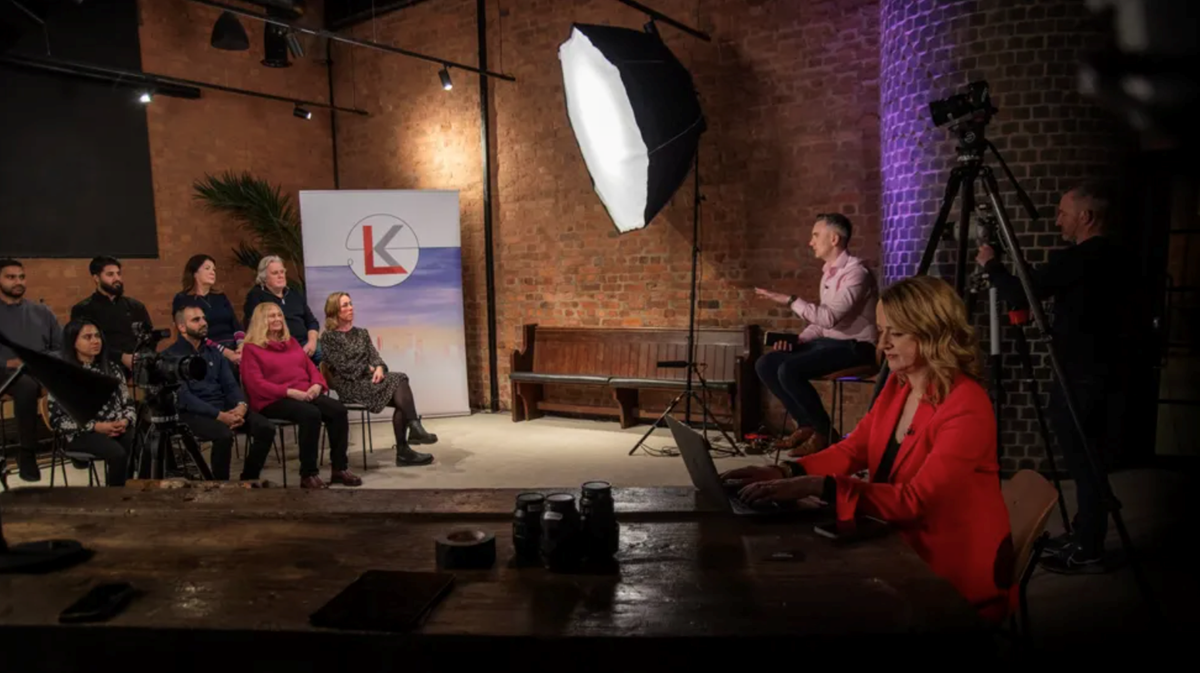We believe that focus groups are an important tool for understanding how people are talking and thinking about politics, society and the big issues facing our country This page provides more information about our focus group methodology.

About focus groups
Why are focus groups useful?
Week in, week out, More in Common’s researchers speak to voters in focus groups across the country to understand their thoughts, feelings and perspectives. How the public talk about the state of the country, our political leaders and their priorities in their own words, is often much more illuminating than the headline numbers we get from polling alone. It is sometimes said that while polling tells you what people think, focus groups help to understand why people think it.
More in Common strongly believes that politicians, policymakers, campaigners journalists and everyone interested in public life, benefits from hearing directly from the public which is why we try and conduct as many focus groups as possible.
How are participants selected?
More in Common uses independent recruiters across the country to select participants. All participants go through a screening process before being recruited to join the group. Participants are not selected on the basis they are interested in talking about politics or the issues involved – unless the purpose of the group is to talk specifically to highly engaged voters. Participants are offered a financial incentive to participate, and this helps to ensure we do not just recruit those who are most keen to attend focus groups.
How do you decide who to recruit?
Most of our focus groups are made up of six to nine people. The recruitment criteria will be determined by what we’re exploring in the focus groups. Very often we will recruit groups made up of one of More in Common’s British Seven Segments – and/or past vote or future vote. Most often we recruit groups from one geographic area, or similar areas as we find a place-based locus helps the discussion.
Unless we are interested in knowing the views of a specific demographic, we will aim to reflect the demographics of that area (as much as is possible in a group of eight), which means recruiting a mix of ages, men and women and people from different socio-economic backgrounds.
What do you ask about?
It depends on the topic, over the past year we have run focus groups on everything from people’s attitudes to DEI, Climate, Migration, local decision making and party politics. The groups are led by one of More in Common’s team of experienced moderators. As much as possible the aim is to create a discussion that is more like a conversation, with opportunities for people to interact with one another while avoiding groupthink.
Where do the groups take place?
Some groups will take place in person, usually in a venue in the local area such as a function room. Other groups take place virtually using Zoom.
Are you using focus groups to predict the election?
No, More in Common, and other British Polling Council members conduct regular voting intention polling. That polling, while not always perfect and only a snapshot, gives us the best and most robust way of understanding how people are currently likely to vote. Focus groups do a different job and help to provide a deeper understanding of what is shaping that headline public opinion.
Do you just speak to undecided voters for your political focus groups?
Undecided voters are an important voter block who we will often speak to in our focus groups, but they alone won’t determine the result of the next election - just as important will be those voters who are switching parties and who are sticking with the party they voted for in 2019. To properly understand how voters are thinking about the next election, the big issues that will be determining their vote and the leaders of the two main parties it is important to speak to a range of different groups.